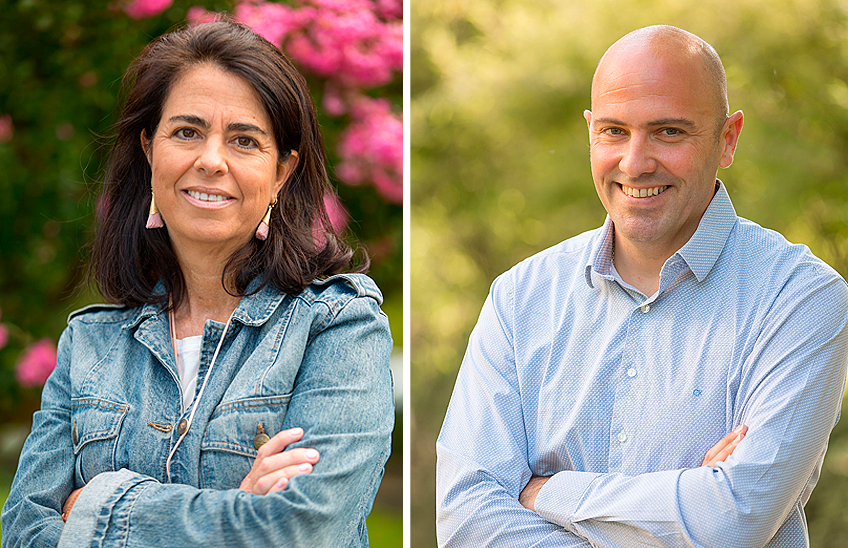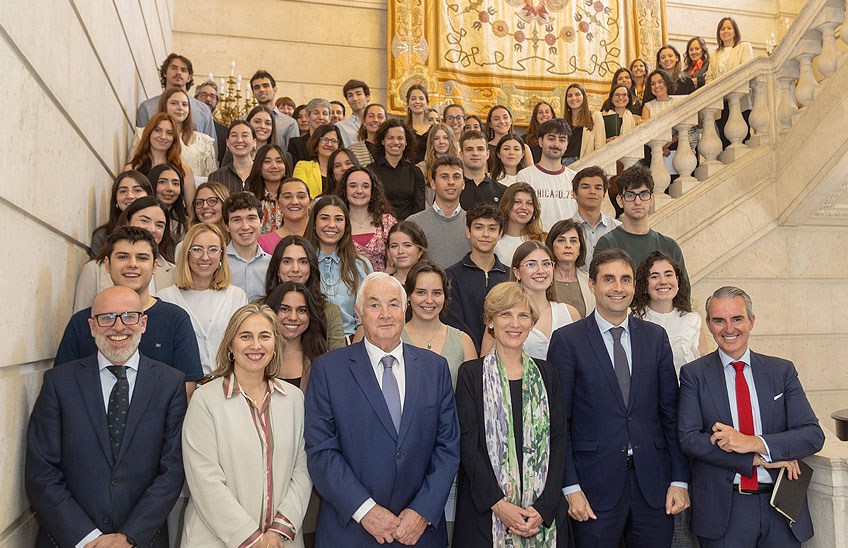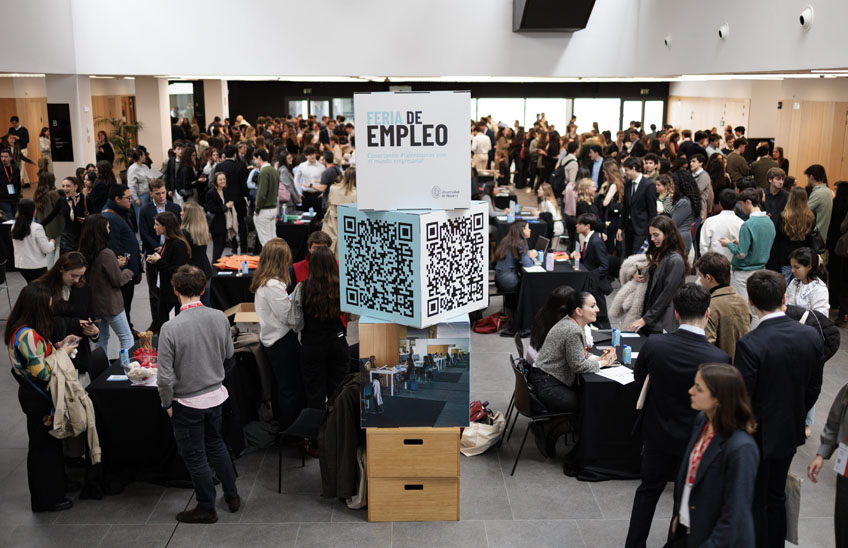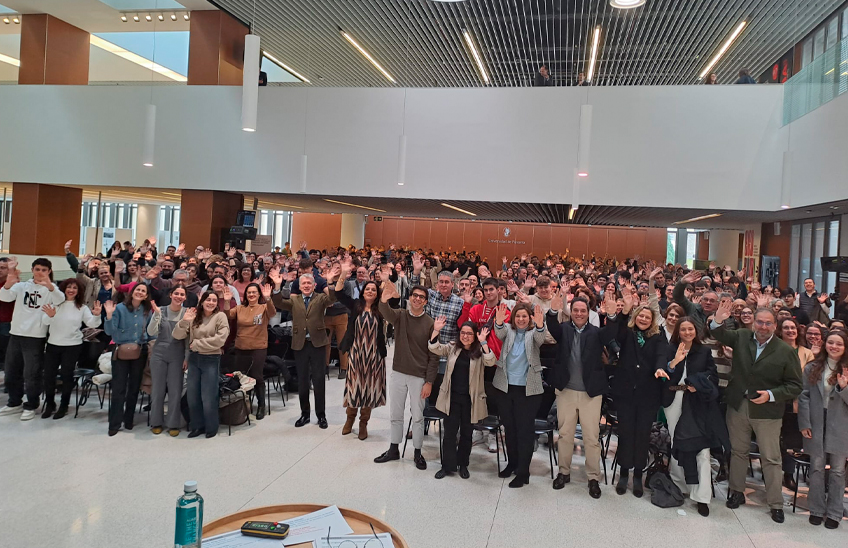The European Union awards 20 new research projects worth 6 million euros to the University.
The University assumes the coordination of 2 of the new projects: Plexus and ReMeD, both at area of the Social Sciences.

FotoManuelCastells/Mercedes Medina, principal investigator of project ReMeD of the School de Comunicación; and Pablo Cobreros, coordinator of project Plexus of the School de Philosophy y Letras.
10 | 01 | 2023
The year begins with the launch of 20 new research projects at the University of Navarra, involving funding of 5,945,405 euros for the academic center from the European Commission's Horizon Europe program. More than half of the new projects - twelve, to be precise - will address issues of health and personalized medicine; although the two projects that the University will lead are in the field of Social Sciences: ReMeD, from the School of Communication, on the resilience of the media to help democracy; and Plexus, from the School of Philosophy and Letters, which will base its research on the knowledge dissemination of philosophical logic.
Other centers of the University that have received these grants are the Clínica Universidad de Navarrathe Institute for Culture and Societythe Tropical Health Institute ISTUN, the School de Ciencias, the School of Architecture or the School of Pharmacy, among others.
The research will be carried out in an interdisciplinary and international manner, thanks to the participation of experts in different disciplines from various countries.
The director of the Research Management Service of the University of Navarra, Javier Mata, highlights the increase in European grants this year, both in issue and in funding, and points out: "These grants highlight the important role of science in the search for solutions to social needs. A research carried out with rigor, excellence and independence generates benefits for society". Mata points out that "every year the issue of alliances with researchers from all over the world, the training of interdisciplinary teams and the approach of the groups in search of results with social impact, which contribute to the care of the environment and of people, are increasing".
ReMeD and Plexus: democracy in the digital age and knowledge dissemination of philosophical logic
The School of Communication leads the project ReMeD that will investigate for three years the resilience of the media to help democracy in the digital era. Solutions will be proposed to improve the link between citizens, media and digital technologies. According to Mercedes Medina, principal investigator and professor at School, "this research will provide an overview of the problems that affect journalists in the exercise of their activity and the difficulties encountered by citizens to access accurate and quality information. In addition, initiatives will be suggested so that citizens can avoid the toxic impact of disinformation and make decisions based on contrasted facts".
For its part, coordinated by the School of Philosophy and Letters, the project PLEXUS will investigate for four years the Substructural Logics from three dimensions: philosophical, logical-mathematical and experimental. PLEXUS aims to consolidate a worldwide network of research that will allow the flow of new developments, ideas and techniques related to substructural logics and thus train a new generation of researchers at subject. As pointed out by Pablo Cobreros, Full Professor of Logic and Philosophy of Science and coordinator of PLEXUS, "this project is focused on the training of young researchers, so our main contribution to society will be the preparation of excellent scientists for the future who will be able to educate others and develop their own projects. We will also carry out actions of knowledge dissemination of Logic that will reach a very wide audience and contribute to make visible the beauty, plurality and creativity of its study".




